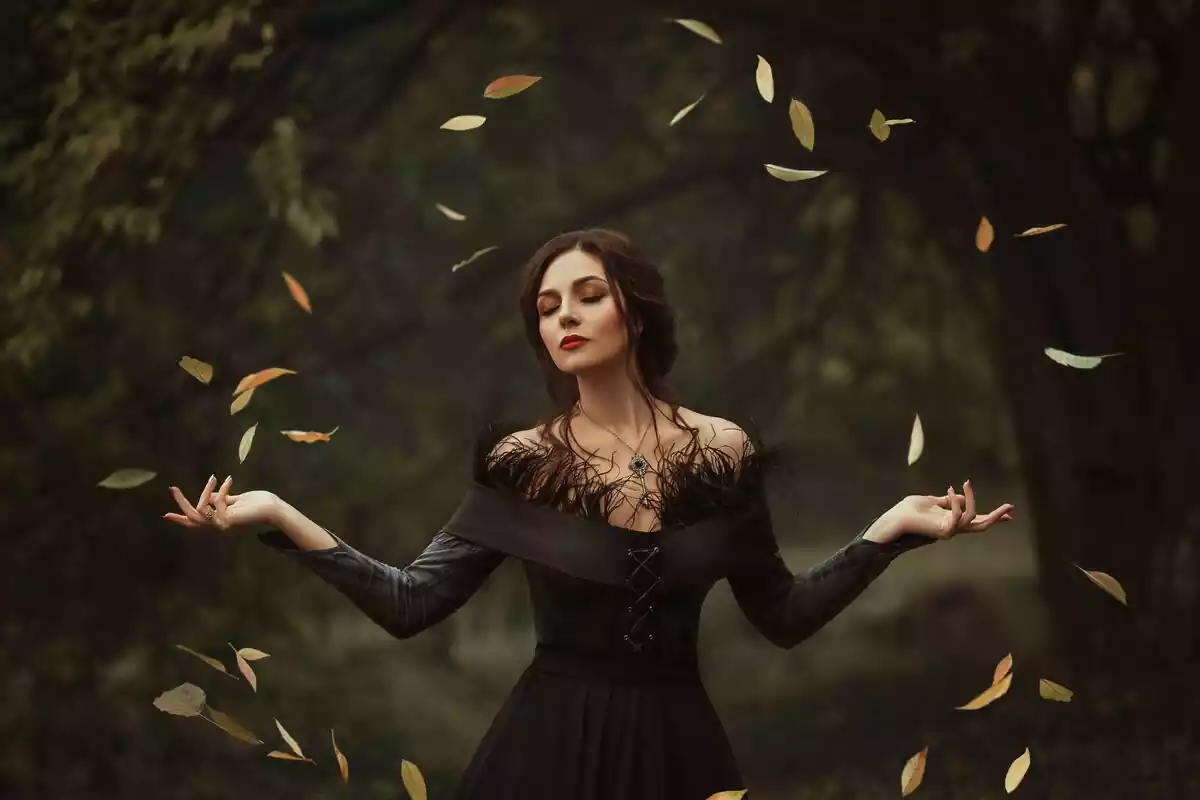
As discussed in previous articles, Witches and Wiccans aren’t interchangeable terms. Wicca is a form of Witchcraft; Witchcraft is more of an umbrella term, encompassing a broad spectrum of approaches to metaphysics and comprising practitioners of an impressive array of magical activities.
Witchcraft doesn’t have a homogeneous theology, and, since it is a Craft rather than a religion, one can be a Witch within many religious frameworks (or outside the lot of them), just as an atheist, a Hindu, a Buddhist and a Wiccan may all practice Yoga without compromising their spirituality.
Wicca, however, does have its own theology. Or, more accurately, it does according to most introductory books on the subject. Many even refer to it as the religious aspect of Witchcraft (which it isn’t, at best, it’s a religious aspect of Witchcraft).
Taking a beginner’s guide randomly from the shelves, we found in Jeremy Kingston’s Witches and Witchcraft[Danbury Press, 1976]that: “Modern white witches worship the Great Mother, the Earth Mother …[and]also the Horned God … god of the hunt.” Kingston was writing a goodly while back, but that sort of categorical statement can still be found on any number of Internet introductions to Wicca.

Most modern Wiccan primers, however, are more understanding of the path’s diversity. In Tony and Aileen Grist’s The Illustrated Guide to Wicca[Godsfield Press, 2000], the picture is painted less brashly: “Most Wiccans believe that divinity is both male and female."
For some, that means acknowledging a single goddess and a single god. For others, it means worshiping a number of gods and goddesses selected from Pagan pantheons.” The authors go on to mention that Wiccans, being pragmatists, don’t tend to get hung up on the issue of how “real”, if at all, these invisible friends are.
Who are Wiccans' Goddes and God
Perhaps, though, Wiccans can get a trifle too blasé about such matters. Like Douglas Adams’s philosophers trying to explain to Deep Thought what the Ultimate Question actually was, Wiccans often get hazy on who they think this Goddess and God pair actually are. Are they a personified Yin and Yang, complimentary halves of a single supreme deity, or even Platonic ideals of humankind?
A common opinion is that they represent the true entities behind all lesser Goddesses and Gods, all of whom are aspects of the divine pair. If this is so, why then do we give them certain specific attributions (lunar, earth and triune aspects for the Goddess; solar, horned and dual aspects for the God) to the exclusion of others? A reasonable answer to this is that we are dressing them in the imagery of what we deduce humanity’s very earliest Goddess and God were.
Perhaps our pragmatism towards the nature of divinity, the subject considered of paramount importance by many of history’s most sophisticated thinkers, can lead us into bad magical habits. Literalist Wiccans might be in danger of basing their lives on beliefs as little questioned as those of the most buttoned-down fundamentalist. Subjectivists might be treating actual entities less respectfully than they would characters in a fantasy role-playing game.

More importantly, though, neglecting theology may be a teensy bit of a cop-out, intellectually and spiritually. It’s both an oddly apathetic response to forces we claim to revere and an unexpectedly unadventurous attitude for Witches to have towards the oldest and deepest magic of all.
In one of his better moments in The Equinox, Aleister Crowley reminded his readers that: “Our Method is Science, Our Aim is Religion”. If so, theology, or perhaps “thealogy” in a Goddess favoring path, is to magic what the Hubble telescope is to astronomy, a device through which to bring us more closely into the source of mystery.
